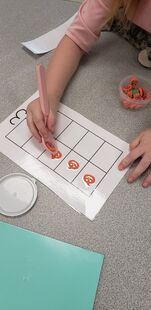 Fine Motor Development of preschoolers What is fine motor skill? Fine motor skills are the skills involving visual-motor (hand-eye coordination) in conjunction with the hands and fingers. As defined by Wikipedia: “Fine motor skill is the coordination of small muscles in movement with the eyes, usually involving the synchronization of hands and fingers. The complex levels of manual dexterity that humans exhibit can be attributed to and demonstrated in tasks controlled by the nervous system” Fine motor development begins at infancy, and you may be surprised to learn-involves the proximal parts of the body (shoulders, joints, forearms, and spine). Examples of fine motor skills:
Activities and ways to support fine motor development: Several studies have suggested that visual motor integration can promote more coordination of movement and faster development of fine motor abilities. How can parents and teachers provide visual motor integration? Through many different games and activities that involve hand eye coordination along with use of the small muscle groups such as fingers and hands. The following is a list of activities to help promote fine motor skill development. Or you can download the pdf here: fine motor activities Activities to help promote fine motor skill development: Arts and Crafts Activities Drawing, Writing, Painting, cutting Use different sizes and various writing and drawing tools such as paintbrushes, broken crayons, pencils, pens, etc. and hole-punchers and scissors. Pouring & Measuring Fun Activities that involve pouring this can be helping cook or just a simple “sensory bin” (medium to large plastic container filled with rice, beans, sand, or water) provide variety of tools like spoons, cups and measuring cups. Fingerplays & Songs Gestures such as rain falling, or apple picking Balloon Fun Balloon tennis, catching small balloons, tossing balloons through a hula hoop Fine Motor boxesFine motor boxes
To make a fine motor box cut slits into the top a plain shoebox (can be bought at a craft store), paint or color each slit and matching popsicle stick (child will match the color and place stick in slit). Old scrabble pieces can be used to match the letters and place tile in slit. *Think coin into a piggy bank activity but with some cognitive thinking involved. Other activities Catch the ball in the basket, crab walk There are several more ways and activities, these are just a few but a good start and mentioned the most in research on fine motor development.
1 Comment
As more and more schools and business close temporarily due to the Covid-19 outbreak, I wonder what will be the permanent effects of this outbreak. Not economically, although that too will affect our children by possibly changing their home environment, socioeconomic status, and family stress all contribute to a child’s home life and development. What will schools and teachers learn from this experience? My hope is that teachers with maladaptive practices, being so forced out of their comfort zone and having to think outside of the box grow themselves. For middle childhood, elementary and middle school students, the lack of communication and peer to peer collaborative learning experiences will be detrimental. Luckily many teachers will be sharing online resources and frantically searching for ways to provide opportunities for virtual collaboration but what about the ones who don’t? The formative assessments teachers use to guide their teaching and determine what misunderstanding their students have will be nonexistent for weeks. Any work that students are able to turn in during this time doesn’t give a teacher true insight into the student’s learning being that the possibility that the child really struggled and had help from mom, dad or older siblings. Not that parental assistance is wrong but a child’s true ability and where they struggle might not be as apparent to the teacher. Parental assistance could also add stress to their child causing lack of motivation, and negative attitude toward learning (yes there should for as long as possible be a POSITIVE attitude toward learning-it’s kind of the goal that helps them achieve success). Parents can also put pressure on teachers who are already rushed to find better ways to teach and reach their students adding to possible negative effects. What about the positive aspects of this event? The possible outcome that teachers continue to go above and beyond what’s required of them and to find ways to enable their students to continue their learning paths from home would be a tremendously positive effect. Another positive effect possible, is the forcing normally rushed and busy families to slow down. There’s no sports, no after school commitments, no working till 6 then picking your kids up from after school programs-enabling more time with the family. More time rather to argue about getting off electronics, but also causing parents to really look at what their kids are doing online and taking advantage of many free options available for online educational resources. Humanity seems to always come through, just look at the Italians all singing outside their balconies for example. We will creatively find ways to connect with one another, hopefully we will also find ways in which our children can still connect with one another. Not all of us have given the privilege of owning a phone to our kids and many are just still very young. I myself, two days in am well aware I need to stick to a schedule or I will grow lacks in life. For teachers, our classroom is our second home-it’s really difficult for me to not wake up and go into my classroom every morning (even when we were all just waiting for spring break to arrive). This is not a break, (summer really isn’t a break either but that’s a soap box for another time) this is a time we worry about how this will affect our students academically and for us early childhood educators-how it’s going to effect the child as a whole, socially, physically, psychologically. Many teachers have taken to social media to help parents and their students by sharing ideas and resources. The most important thing for all (educators and parents) is to be patient and understanding with one another so that we can all grow and learn from this experience in a positive way. Link to parent survey for my study on this- https://universityofalabama.az1.qualtrics.com/jfe/form/SV_4Vj61LF9RNrWWqN
Emotions basic and complex serve a motivational function in our lives.
Much of our emotions’ functional purposes not only help us function in our daily lives but also helps direct us toward environments and situations that will benefit our psychological well-being (Reeve, 2015 pp 369-427). That is, if we have good emotional regulation and knowledge. Without this our lack of emotional regulation can cause us to be directed to environments and situations that are NOT benefiting to our psychological well-being. Also, what prior experiences we have determine our interpretation of events and situations-again guiding us toward environments based on these. These naturally involves our emotional experiences that affect our memory and interpretation of events. Emotional knowledge is developed over time through our emotional experiences. It is important as parents and educators to help children develop and increase their emotional knowledge as well as providing supporting emotional experiences. |
AuthorJessica King (teacher) Archives
November 2021
Early Experiences
November 2021
Fine Motor SkillsCovid 19 |
||||||||||
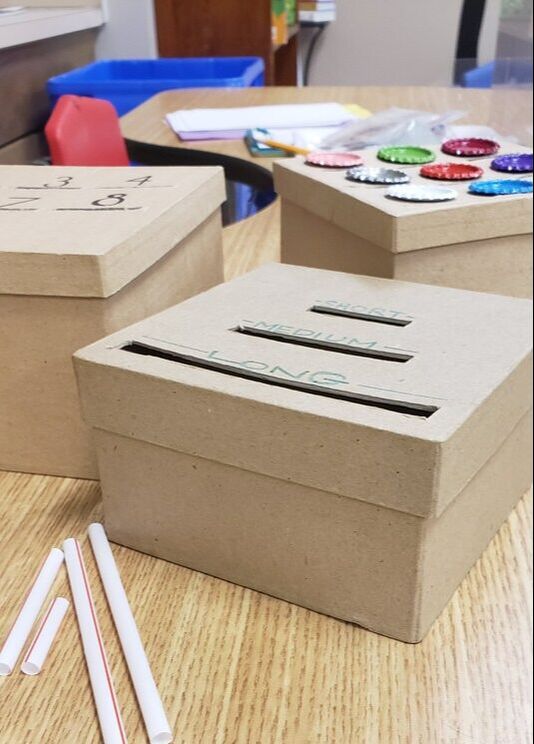
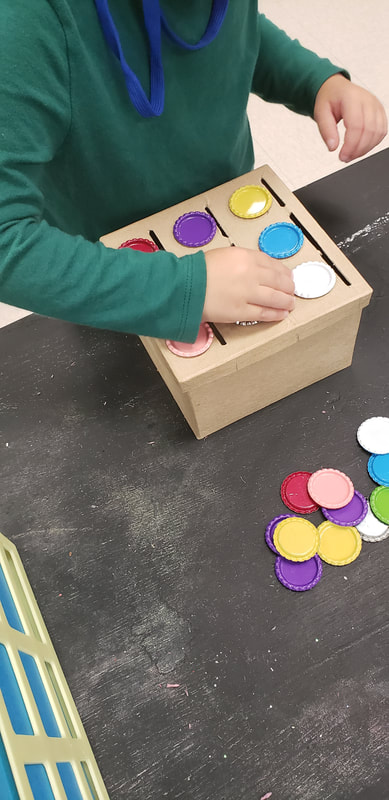
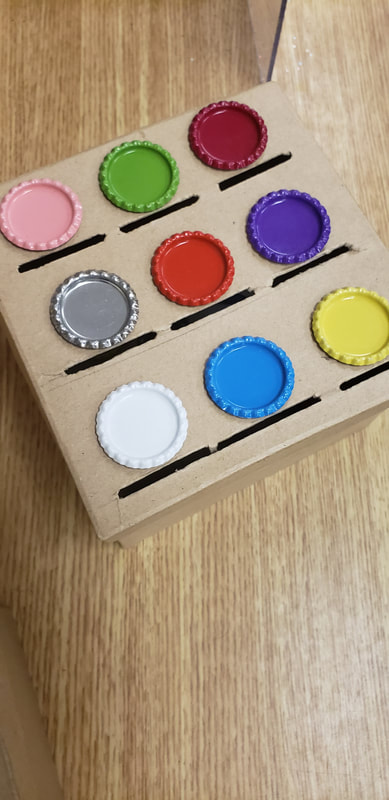
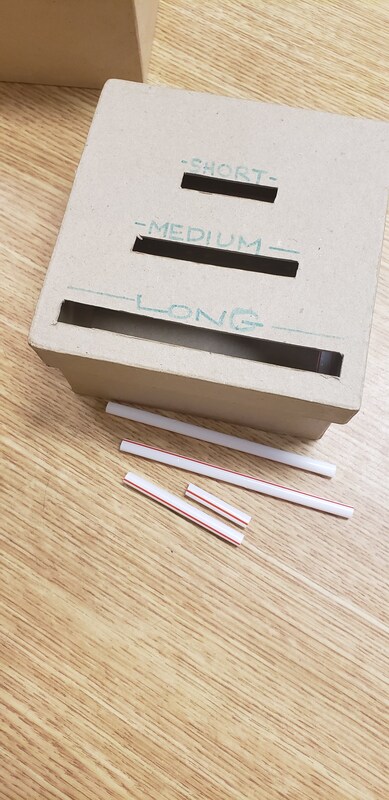
 RSS Feed
RSS Feed
